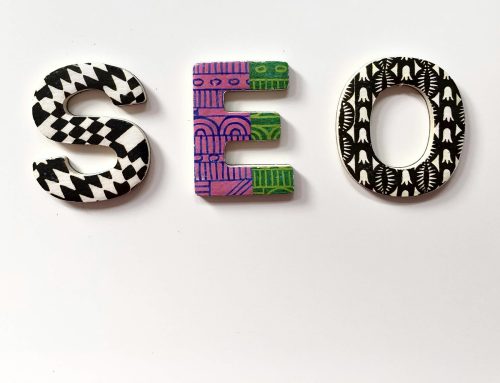In the dynamic realm of online business, the sales funnel reigns as the backbone of success.
It is a carefully constructed pathway that guides potential customers through various stages, from initial awareness to the ultimate goal of conversion. Before embarking on the creation of a sales funnel, it is imperative to grasp its purpose and recognize the pivotal role it plays in driving sales and achieving business objectives.
At its core, the sales funnel represents the customer journey—a visual representation of the process individuals go through when engaging with a business or brand. By understanding and effectively utilizing the sales funnel, businesses can strategically nurture prospects, convert them into loyal customers, and ultimately foster sustainable growth.
The sales funnel is composed of several distinct stages, each serving a unique purpose in the customer’s decision-making process. These stages typically include:
- Awareness: This is the initial stage where potential customers become aware of your business, brand, or products. It is crucial to capture their attention and leave a positive impression. Awareness can be generated through various marketing channels, such as social media, content marketing, advertising, or word-of-mouth referrals.
- Interest: Once individuals are aware of your business, the interest stage aims to cultivate their curiosity and desire to learn more. Engaging content, compelling storytelling, and targeted marketing campaigns can be employed to capture their interest and motivate them to explore further.
- Consideration: At this stage, potential customers actively evaluate your offerings against their needs, preferences, and budget. Providing detailed product information, addressing common concerns, and offering personalized solutions can help sway their decision in your favor.
- Intent: This stage signifies a clear indication of a potential customer’s intention to make a purchase. It is crucial to facilitate a seamless and frictionless experience, ensuring that potential customers can easily take the desired action, such as adding items to their shopping cart or initiating the checkout process.
- Evaluation: Before committing to a purchase, potential customers often engage in comparative analysis, evaluating similar products or services from different sources. Demonstrating the unique value proposition and competitive advantages of your offerings can help sway their decision in your favor.
- Purchase: This stage represents the ultimate goal of the sales funnel—converting potential customers into paying customers. It is essential to streamline the purchase process, offering secure payment options and clear calls to action that encourage swift and confident decision-making.
- Retention: Once a customer completes a purchase, the focus shifts to fostering long-term loyalty and retention. Building strong customer relationships, providing exceptional customer support, and offering post-purchase incentives can encourage repeat business and transform customers into brand advocates.
- Advocacy: Satisfied customers can become powerful brand advocates, promoting your business through positive word-of-mouth, referrals, and online reviews. Leveraging their enthusiasm and incentivizing advocacy can expand your customer base and further enhance your sales funnel’s effectiveness.
Understanding the sales funnel’s purpose is essential because it serves as a roadmap to guide your marketing efforts, content creation, and customer engagement strategies. By comprehending the different stages and their significance, businesses can tailor their messaging, content, and interactions to meet customers’ specific needs at each stage of their journey.
Additionally, a clear understanding of the sales funnel allows businesses to identify potential gaps, areas of improvement, and conversion bottlenecks. This knowledge empowers them to refine their strategies, optimize their processes, and enhance the overall customer experience. Regular monitoring, analysis, and adjustments based on the sales funnel’s performance can lead to increased conversions, improved customer satisfaction, and ultimately, business growth.
In conclusion, the sales funnel is the vital infrastructure that underpins successful online businesses. By comprehending its purpose and recognizing its role in driving sales, businesses can strategically navigate each stage of the customer journey, effectively engage potential customers, and cultivate long-lasting relationships. A solid understanding of the sales funnel provides the groundwork for constructing an optimized and winning sales funnel on your WordPress website, setting the stage for business success in the digital realm.












![Vulnerabilities of Using Outdated HTML Websites -
These days, a website is more than just an online presence; it serves as the digital storefront for businesses and personal brands alike. A well-designed and functional website can significantly impact how a brand is perceived by its audience. It’s the first point of interaction for many customers and serves as a critical tool in establishing credibility, conveying brand values, and showcasing products or services. The design, usability, and content of a website can make or break a user’s experience and, by extension, their perception of the brand.
However, with the rapid evolution of web technologies, there’s a growing concern about the use of outdated HTML websites. This concern is particularly relevant for sites that do not leverage modern content management systems (CMS). The internet is an ever-changing landscape, and what was considered cutting-edge a few years ago may now be obsolete. Websites that fail to keep up with these changes not only risk falling behind in terms of functionality and aesthetics but also expose themselves to serious security vulnerabilities. Modern CMS platforms offer a range of benefits, including improved security, better SEO, and easier content management, which outdated HTML sites often lack. Therefore, for a business or personal brand looking to maintain a competitive edge and ensure online security, updating to a modern web infrastructure is not just advisable; it’s imperative.
Learn More: https://firstsourceweb.com/vulnerabilities-of-using-outdated-html-websites/ [ LINK IN PROFILE]
#webdevelopment #coder #webdesigner #sandiegowebdesign #webdesign #sandiegowebdesigner #webdevelopers #wordpress #webdesigner #webdev #webdeveloper](https://scontent-den2-1.cdninstagram.com/v/t39.30808-6/417796928_18298744183145385_506572109259795950_n.jpg?_nc_cat=106&ccb=1-7&_nc_sid=18de74&_nc_ohc=EWXq5-Mj02gQ7kNvgHfFGwV&_nc_ht=scontent-den2-1.cdninstagram.com&edm=ANo9K5cEAAAA&oh=00_AYA3zEKGhOTMeiIegYFOSDT0l4R10rXP4Pt8ul5uyJ33KQ&oe=66AA589E)


